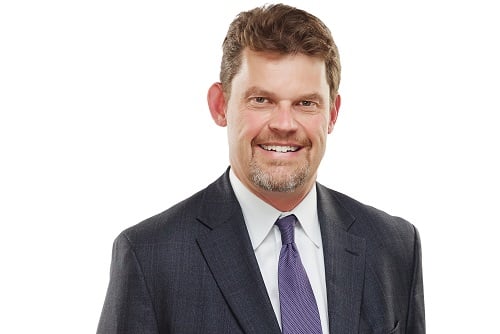CIO and industry veteran explains approach and why personality and culture are vital to its success

Less is more for Ian Hardacre, who believes Empire Life’s singular investment approach makes them a unique proposition for investors.
The senior vice president and CIO, whose career includes an early spell at Ontario Teacher’s Pension Board and almost 20 years at Invesco Canada (Trimark), is clearly proud of the team he has helped assemble at Empire.
He places great importance on investment culture and believes it’s an element of a company that is undervalued. Getting that right is particularly vital for Empire because it practices only one investment style - a fundamental, value-oriented approach.
“When I started as CIO we had a couple of empty seats,” Hardacre said. “I was able to hire some high-quality people, so we were able to get the right people with the right personalities and right investment styles all in one place.
“One of the things that makes us a little bit different from everyone out there - for the most part - is we only have one investment style, which is value-oriented. All insurance companies, including all big organizations, have a grocery store of investment styles but we are just one.
“Like everything there’s pluses and minuses but people understand our investment style and what we represent and stand for. We’re not just a grab bag of different styles.”
This, Hardacre believes, makes Empire unique but requires a certain type of person to implement successfully. Members of his 12-strong team need the courage of their convictions, the ability to recognize when their ideas change and the ability to think outside the box.
He explained: “First and foremost, it’s fundamental investing and value-oriented, not deep value. We aren’t looking just for dirt-cheap companies. Basically, what we’re looking for is growth companies at value prices and to be able to do that you usually have to be contrarian or have a view of the company that is different to the market, which could be contrarian or could just be a different view.
“You need a longer timeframe – you can’t worry about this quarter, next quarter or the quarter after that. You need a longer timeframe – three to five years - for your thesis and idea to play out, which is always a struggle in today’s equity markets because that timeframe is very short for a lot of people.”
Hardacre said that his two years at Teachers in the mid-90s was a great place to start and learn, and he left only when a “once-in-a-lifetime opportunity” to work at Trimark presented itself. His two decades there qualify him for industry veteran status and he admitted the changes in how information is disseminated and devoured presents a challenge.
He said: “The flow of information is completely different to when I started … I think even down to the end client, a lot of cases are very short-term focused. A lot of people have long-term objectives but they check them every day.
“That’s changed from when I started. People had a little more patience or those same individuals weren’t inundated by information that confused them.”
Empire is in growth mode and recently announced new global products, which Hardacre called a big step in the firm’s development in giving clients the investment opportunities they want.
At a broader level, he said the biggest hurdle to deal with is the consistent increases in interest rates, something that looks set to continue. He added that, frankly, the market has not dealt well with this so far.
He said: “How much of that is the hawkishness of central banks versus what’s happening with the China-US relationships and how much that is going to slow down the economy is still all up for debate.
“There are good opportunities out there in terms of stock prices and valuations, there’s no question about that. But starting October 1 to where we are now, the market hasn’t reacted well to the hawkishness of central banks.”
Hardacre predicted more volatility over the next 12-24 months and warned money managers that this is no time to run and hide.
He said: “This is an opportunity to add to your existing portfolio, to add new positons, but one of the characteristics of this sell-off that is different to the last couple of sell-offs over the past number of years is that even the high-quality companies are getting hit.
“If you look back at the beginning of February 2016, there was a pullback in the market and it was more resource-based. This time around, there are a lot of different sectors being hit – the sell-off is broader and wider but this is an opportunity to add to our existing companies and potentially add new ones.”
Follow WP on Facebook, LinkedIn and Twitter



